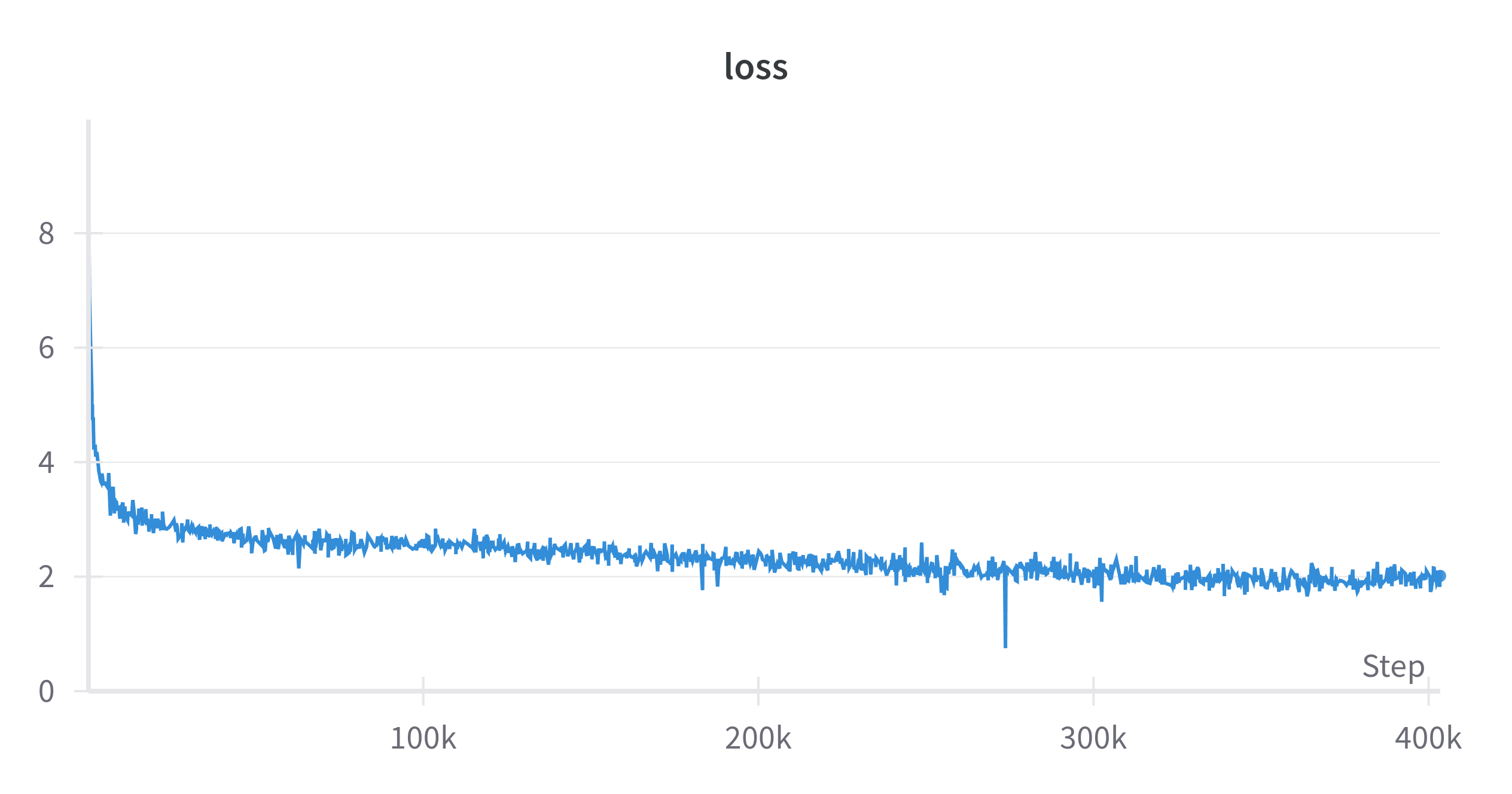license: cc-by-sa-3.0
language:
- de
xLSTM Model trained on German Wikipedia
Research & development of an xLSTM model trained on German Wikipedia.
The Flair team is currently working on the integration of xLSTM (both LM training and fine-tuning models for downstream tasks).
For pretraining this xLSTM model, we this fork (from Patrick Haller) of the awesome Helibrunna library from Tristan.
Initially, we integrated xLSTM model training into Flair - for more information about this, please refer to the archived flair-old branch of this repository.
Changelog
- 28.08.2024: Model training is now done with Helibrunna fork - find it here.
- 10.06.2024: Initial version. xLSTM was trained with Flair library, see this old branch.
Training
The current model was trained with commit f66cc55 from the main branch of the forked Helibrunna repo.
The xlstm library needs to be installed manually - also check that pip3 install Ninja is installed.
The German Wikipedia dump from this repository is used.
The following training configuration is used:
description: "Train a wikipedia xLSTM"
training:
model_name: "german_wikipedia"
batch_size: 10
lr: 6e-4
lr_warmup_steps: 4584
lr_decay_until_steps: "auto"
lr_decay_factor: 0.001
weight_decay: 0.1
amp_precision: bfloat16
weight_precision: float32
enable_mixed_precision: true
num_epochs: 1
output_dir: "./output"
save_every_step: 2000
log_every_step: 10
generate_every_step: 5000
wandb_project: "xlstm"
gradient_clipping: "auto"
# wandb_project: "lovecraftxlstm"
model:
num_blocks: 24
embedding_dim: 768
mlstm_block:
mlstm:
num_heads: 4
slstm_block: {}
slstm_at: []
context_length: 512
dataset:
output_path: "./output/german-wikipedia-dataset"
hugging_face_id: ["stefan-it/dewiki-20230701"]
split: "train" # Also subsetting is possible: "train[:100000]"
shuffle: False
seed: 42
tokenizer:
type: "pretrained"
pretrained_class: "LlamaTokenizer"
pretrained_id: "meta-llama/Llama-2-7b-hf"
Usage
It is possible to use the model to generate some text:
from transformers import AutoModelForCausalLM, AutoTokenizer
model_name_or_path = "stefan-it/xlstm-german-wikipedia"
model = AutoModelForCausalLM.from_pretrained(model_name_or_path)
tokenizer = AutoTokenizer.from_pretrained(model_name_or_path)
input_ids = tokenizer.encode("Heute ist schönes Wetter in", return_tensors="pt")
output = model.generate(input_ids, max_length=100, temperature=0.7, do_sample=True)
generated_text = tokenizer.decode(output[0], skip_special_tokens=True)
print(generated_text)
Caveats
Notice: this model integration is heavily under development. And in the process of finding good hyper-parameters. Also downstream experiments are coming very soon.
Unfortunately, there are nan's occuring in the training (after 7h 33m 14s of training on a single RTX 4090):
This is very likely due to missing grad norm - which will be added soon with Accelerator.clip_grad_norm_.
The uploaded model checkpoint is from 80k steps.
